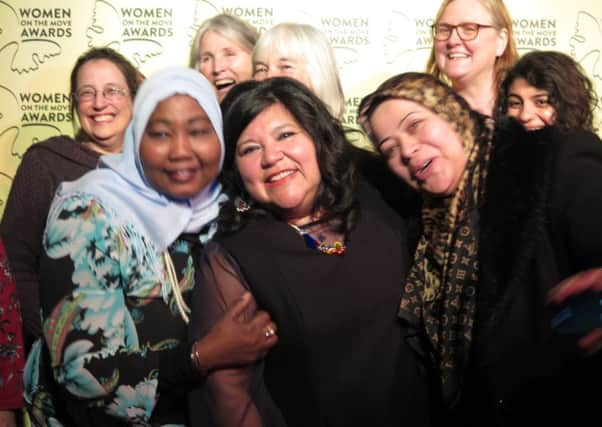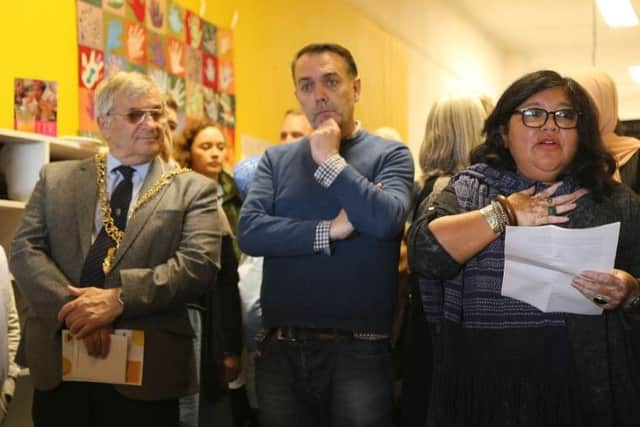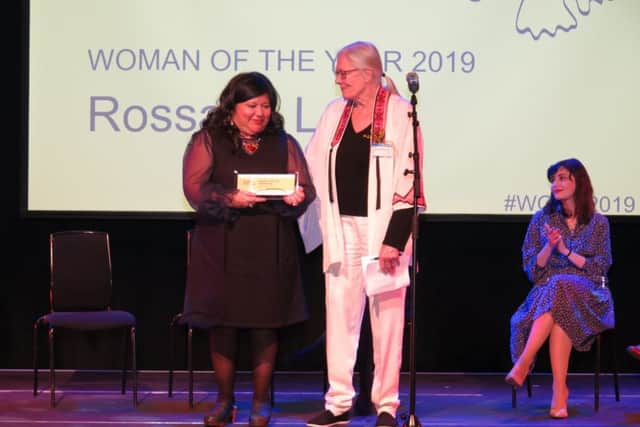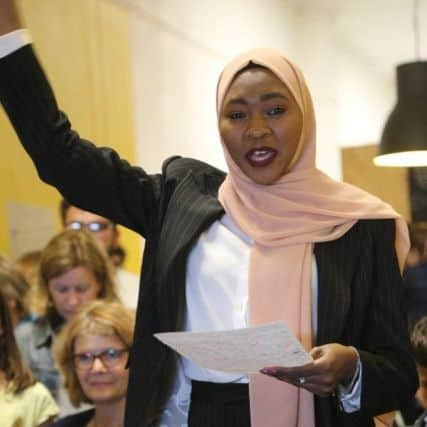Meet the woman behind the thriving Hastings and Rother refugee buddy project


The project has now opened its own space in Grand Parade, St Leonards, called OPEN, as a place where volunteers and families can meet up and share food, where events can be hosted and art exhibitions responding to theme of refuge displayed.
We visited the space to catch up with Rossana Leal, the founder and director of the Hastings and Rother buddy project, to find out more about the scheme and its journey.
Advertisement
Hide AdAdvertisement
Hide AdIt was Rossana’s experience of arriving in the UK in the late 70s as a nine-year-old refugee that drove her to set up the thriving buddy project in Hastings and Rother years later.


She said her family and others fleeing Pinochet’s Chile were met in London by a ‘gigantic’ group of volunteers from a national organisation which brought together faith groups, activists and members of the public.
When they were sent on to Fife, the small town in Scotland where they would be resettled, they were greeted by a crowd of Scottish miners who played the bagpipes in welcome, before handing them the keys to a fully furnished home.
“These are memories I will never forget,” Rossana said. “We were in this completely foreign land, not knowing what was infront of us.
Advertisement
Hide AdAdvertisement
Hide Ad“We were welcomed by people who made the whole experience more manageable.


“They made us feel safe, that was at the heart of it. It was a simple thing really, just being there.”
When Rossana moved to Hastings three years ago, the nation’s TV screens and newspages were full of stories about people drowning at sea and cramped in camps in Calais.
She decided to take part in a collection for refugees outside Debenhams organised by Hastings Support Refugees and said she was astonished by the response. “Hundreds and hundreds of people turned up,” she said. “That was really inspiring, I thought – I’ve come to a great place.”
Advertisement
Hide AdAdvertisement
Hide AdWhen the Government committed to resettling refugees from Syria in the UK, she decided to set up a buddy group in the hope of offering the same welcome that the Scottish miners had done for her family.


While paid council officers deal with the legal side of the resettling process, such as access to housing, benefits and education, the buddies are there for everything else – from the social side of walks, picnics, dinners, to practical matters like accompanying people to the doctors and helping them learn English.
Hastings had a target of resettling 100 people over a five year period and at the moment there are 18 families in the town, to be joined by two more from September onwards, she said.
There are also three families in Bexhill and one in Rye.
While Rossana admits she was initially worried about getting enough volunteers from the local community to be buddies, she said she need not have feared.
Advertisement
Hide AdAdvertisement
Hide Ad“We’ve got more buddies than refugees – the response has been amazing,” she said. “We’ve been inundated with people asking to be a buddy.”
The buddies, who range from people in their 20s to those in their 70s and come from all walks of life from cardiologists to administrators, get a lot out of being involved, Rossana said.
“They are finding out about new cultures, as much as the family is learning about the host culture,” she said.
“They are learning to cook, and it is reducing loneliness.
“There’s a lot of pleasure in the buddies being able to do some simple things so that the family can move forward.
Advertisement
Hide AdAdvertisement
Hide Ad“To see a family being sad and broken when they first arrive – to seeing them taking their child to school for the first time and getting on with their lives.” Many of the refugee families are now moving into work, passing their driving tests and becoming fluent in English, she said.
One young woman who arrived in the UK eight months ago, having had her studies interrupted while she and her family sought asylum, has now applied to university and been offered four places at prestigious institutions to study interior design, Rossana said.
“All these achievements we really celebrate,” she said.
She said being a buddy made a powerful political statement.
“The government position at the moment is to try and make this country as hostile as possible for people seeking refuge,” she said.
Advertisement
Hide AdAdvertisement
Hide Ad“Being a buddy is standing up to that and resisting that narrative.
“I’m quite proud of what we have developed here.”
Rossana’s achievement in founding the scheme and making it what it is today was recognised earlier this year when she won The Woman of the Year 2019 award as part of the Woman on The Move Awards, organised by the UNHCR, the UN Refugee Agency and Migrants Organise.
Around 40 women joined her in London for the ceremony in March where she was presented her award by Vanessa Redgrave.
Rossana said of the award: “It’s been a really empowering experience. We all do these things, we just do them. When someone recognises it, it’s a bit embarassing but it’s quite nice. I’ve never had anything like it.”
Advertisement
Hide AdAdvertisement
Hide AdThe buddy project is currently seeking donations to keep it moving forward and providing vital support to new families.
Donate to the buddy scheme here and find out more about the project here.